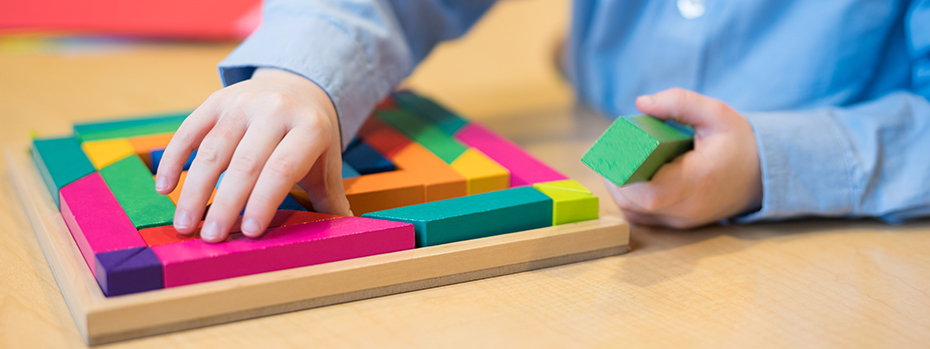Attention Deficit Hyperactivity Disorder (ADHD)

Our ADHD experts at OHSU’s Child Development and Rehabilitation Center have broad experience with attention deficit hyperactivity disorder in children and adolescents.
We offer your family:
- A team approach to assessing your child, with experts from:
- Developmental pediatrics
- Child psychology
- Language pathology
- Social work
- Evaluations that last two hours to a full day, depending on how many specialists you see.
- Recommendations for:
- Accommodations (changes to a home or school environment) and behavioral strategies.
- Home and school resources.
- Medication management, if needed.
- Access to other specialists at OHSU Doernbecher Children’s Hospital and elsewhere at OHSU.
Understanding ADHD
What is ADHD?
Attention deficit hyperactivity disorder (ADHD) is a disorder of the brain that results in hyperactivity, trouble paying attention and impulsive behavior.
For a diagnosis of ADHD to be made, problems must:
- Be present for at least six months.
- Have symptoms before age 12.
- Be present in two or more settings.
- Interfere with school, home life, relationships and activities.
- Not be better explained by another disorder.
For patients
- 503-346-0640
- 877-346-0640 toll-free
Location
OHSU Doernbecher Children’s Hospital, seventh floor
700 S.W. Campus Drive
Portland, OR 97239
Free parking for patients and visitors
Refer a patient
- Fax our CDRC referral form to 503-346-6854
- For help or provider-to-provider advice, call 503-346-0644 or 888-346-0644
Who gets ADHD?
About one in 10 children ages 3 to 17 in the U.S. has gotten an ADHD diagnosis, according to the Centers for Disease Control and Prevention.
About one-third of children with ADHD carry the condition into adulthood. OHSU researchers estimate about 3.5% of Americans have ADHD.
What causes ADHD?
Research continues into the exact causes of ADHD. Possible factors include:
- Genetic factors. ADHD can run in families.
- Problems during brain development in the womb.
- Prematurity (birth before 37 weeks of pregnancy).
- Exposure to lead as a young child.
Types of ADHD
ADHD is one of the most common childhood brain disorders. It has three types:
- Inattentive: Trouble paying attention.
- Hyperactive/impulsive: Trouble controlling behavior and with being too active.
- Combined: Symptoms of both types.
ADHD signs and symptoms
Inattentive symptoms:
- Fails to pay close attention to details.
- Needs help focusing on tasks or play.
- Easily distracted.
- Often loses or forgets things.
- Seems not to listen when spoken to.
- Needs help following directions and finishing tasks.
Hyperactive symptoms:
- Fidgets or taps.
- Needs help playing or working quietly.
- Runs around at inappropriate times.
- Talks more than most people.
- Is in constant motion.
Impulsive symptoms:
- Needs help waiting their turn.
- Interrupts or intrudes on others.
- Blurts out answers before others finish questions.
Our ADHD services
Screening
Your child’s primary care provider can screen for and treat ADHD.
We take referrals of complex cases. We screen children using:
- The Vanderbilt Assessment Scales or other behavioral assessments.
- Information from home and school.
Evaluation
Other conditions can look like ADHD. That makes it important to get an accurate diagnosis.
At your child’s visit, you can expect:
- An evaluation with one or more members of our team.
- A physical and neurological exam.
- Testing to assess your child’s:
- Development.
- Mental health.
- Communication skills.
- Intelligence.
- Academic skills.
- Executive skills: planning, organizing, paying attention.
Review
We will:
- Meet with you and your child to discuss strengths and things that are working well.
- Meet with you alone or with your child to discuss the diagnosis and challenges.
- Give you test results and notes.
- Share our recommendations for managing and treating ADHD.
Recommendations
We will provide you and your child with resources to manage ADHD with your primary care provider, school and community agencies. We can meet with you again if you have new concerns.
We’ll give your family a custom plan that includes resources and strategies for:
- Understanding and managing ADHD.
- Setting behavior expectations.
- School accommodations and advocacy services to support your child in the classroom. These may include:
- A seat away from distractions.
- Tutoring.
- Help organizing assignments and supplies.
- Extracurricular activities.
- Behavioral support services in the community.
- Managing medication with your primary care provider.
Medications
Medications that help with ADHD symptoms include:
- Amphetamines, such as dextroamphetamine-amphetamine (Adderall) and dextroamphetamine (Dexedrine).
- Methylphenidates (Ritalin, Concerta, others) and dexmethylphenidate (Focalin).
- Non-stimulant medications such as guanfacine (Intuniv) or atomoxetine (Strattera).
Research
Experts at OHSU are studying ways to improve ADHD diagnosis, treatment and management. Learn about our Center for Mental Health Innovation.
Learn more
- ADHD – HealthyChildren.org, American Academy of Pediatrics
- Attention-deficit/hyperactivity disorder, National Institute of Mental Health
- What is ADHD? American Psychiatric Association.
- Attention-deficit/hyperactivity disorders (ADHD), Centers for Disease Control and Prevention